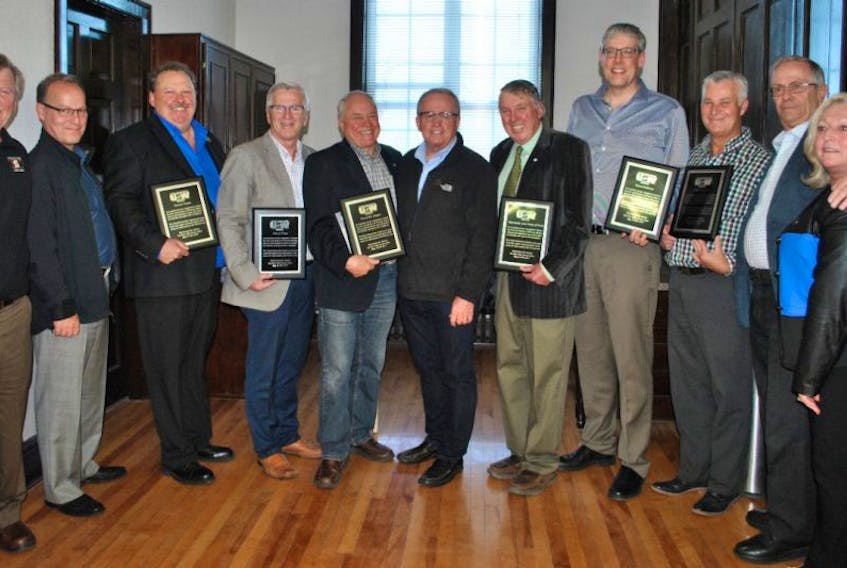The first of those municipalities were the six located in Pictou County, and the union recognized them Monday night for their leadership and endorsement, presenting plaques to the towns of New Glasgow, Pictou, Stellarton, Trenton, Westville and the Municipality of Pictou County.
“You started it,” said Stephen Hunt, the USW director for western Canada. “We’re immensely proud of the work that you did in your community to fight back.”
The Stop the Killing, Enforce the Law campaign began three years ago, and honours the 26 miners killed when the Westray Mine exploded 25 years ago. It aims to save lives and make corporations more accountable through increasing the number of charges and prosecutions of those responsible for workplace deaths.
FULL COVERAGE: Remembering Westray: 25 years
The campaign’s goal is to pressure and educate Crown attorneys and police to investigate, charge and prosecute workplace deaths as possible criminal acts.
Ken Neumann, national director of the USW, said when Bill C-45 was enacted in 2004, they believed they had won a great victory. However, in the years since, the union has been disappointed with the results, he said, noting that 11 prosecutions have produced few convictions in the country.
“Our theory is, if you kill a worker, you go to jail,” he said. “We mourn for the dead and fight for the living. We want to make sure these people didn’t die in vain, and make sure these things never happen again.”
Neumann said the USW rejects the notion that workplace deaths are the price of business. “People should have right to go to work safely.”
The campaign asks governments to educate, train and direct Crown attorneys and police officers to apply the Westray amendments of the Criminal Code of Canada, to hire dedicated prosecutors who are given the responsibility for health and safety fatalities, and to achieve greater co-ordination among regulators, police and Crown attorneys so that health and safety regulators are trained to reach out to police when there is a possibility that charges are warranted.
Sylvia Boyce, USW co-ordinator of health and safety for the Atlantic region, said in Nova Scotia, British Columbia, Manitoba and Alberta, steps have been taken in this direction.
“We’re asking governments to provide the support and resources, to look at every workplace death through the criminal lens the way any other death in society is.”
About the Westray Bill
What is Bill C-45?
Bill C-45 is federal legislation that amended the Canadian Criminal Code and became law on March 31, 2004. The bill established new legal duties for workplace health and safety, and imposed serious penalties for violations that result in injuries or death. The bill provided new rules for attributing criminal liability to organizations, including corporations, their representatives and those who direct the work of others.
New Sections of the Criminal Code
Bill C-45 added Section 217.1 to the Criminal Code, which reads:
"217.1 Every one who undertakes, or has the authority, to direct how another person does work or performs a task is under a legal duty to take reasonable steps to prevent bodily harm to that person, or any other person, arising from that work or task."
Bill C-45 also added Sections 22.1 and 22.2 to the Criminal Code imposing criminal liability on organizations and its representatives for negligence (22.1) and other offences (22.2).
Why was Bill C-45 (Section 217.1 in the Criminal Code) created?
Bill C-45, also known as the "Westray Bill," was created as a result of the 1992 Westray coal mining disaster where 26 miners were killed after methane gas ignited, causing an explosion. Despite serious safety concerns raised by employees, union officials and government inspectors at the time, the company instituted few changes. Eventually, the disaster occurred.
After the accident, the police and provincial government failed to secure a conviction against the company or three of its managers. A Royal Commission of Inquiry was established to investigate the disaster, which made 74 recommendations in 1998. The findings of this commission led to Bill C-45.
Source: Canadian Centre for Occupational Health and Safety









